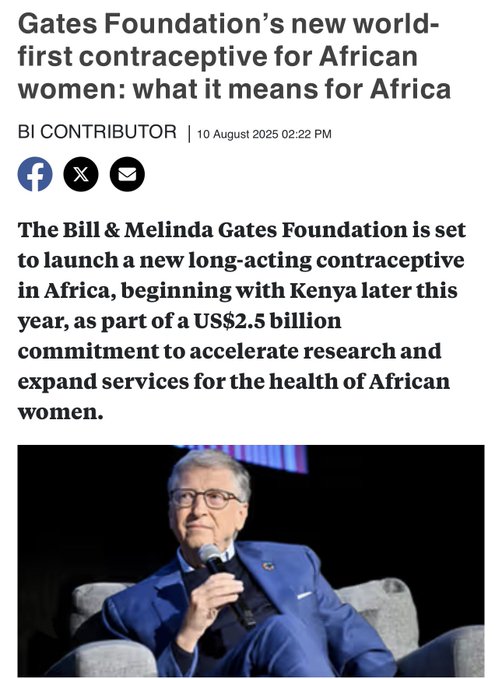A new wave of population control is quietly sweeping across Africa — and it’s coming straight from one of the most powerful philanthropic machines on Earth. The Bill & Melinda Gates Foundation is rolling out a first-of-its-kind contraceptive device that can prevent pregnancy for up to eight years — a lifespan far longer than anything currently on the market.
According to Anita Zaidi, President of the Gates Foundation’s Gender Equality Division, the hormonal intrauterine device (IUD) is being launched in Kenya, Nigeria, and possibly India. This tiny device, inserted directly into a woman’s uterus, releases progestin — a synthetic hormone that blocks ovulation, thickens cervical mucus, and makes it nearly impossible for sperm to reach an egg.
On paper, it’s pitched as “long-acting” and “reversible.” In reality, critics fear it could be something else entirely — a technological tool to reshape birth rates in regions with soaring young populations. The push comes alongside the expansion of DMPA-SC, a self-injectable contraceptive also backed by the Gates Foundation, which is expected to be rolled out to over 35 countries, including eight in Africa: the Republic of the Congo, Madagascar, Malawi, Nigeria, Senegal, Uganda, and Zambia.
Supporters hail it as a revolution in reproductive health. Skeptics see a disturbing pattern — powerful global players dictating the reproductive futures of women in the developing world under the banner of “choice” and “affordability.” The question many are now whispering is this: when a single device can silence fertility for almost a decade, who really controls the future — the woman, or the ones who put it there?










